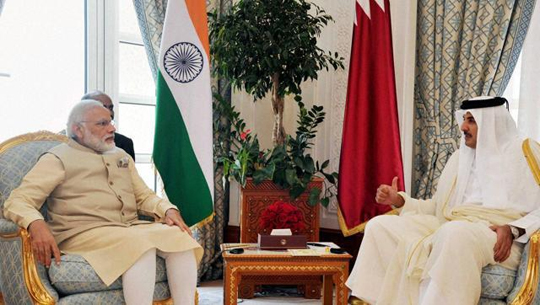Bengaluru, Jan 25: The Karnataka government would hold a Global Investors' Meet (GIM 2020) in Bengaluru from November 3-5 to showcase the southern state's ecosystem for attracting investments from the world over, an official said on Friday.
"Our Chief Minister B.S. Yediyurappa held the first road show on the GIM at the 50th World Economic Forum (WEF) annual meeting, being held at Davos in Switzerland and invited global firms to participate in the 3-day event for investment opportunities," additional secretary P. Ravikumar told IANS.
At a curtain-raiser on "Invest Karnataka 2020" on Thursday, the BJP Chief Minister said the theme of the GIM would be "Innovate Now. Growth Forever" as the state had one of the best natural and human resources for investing in manufacturing, services and agriculture sectors and creating jobs.
"About 100 entrepreneurs, businessmen and heads of global firms participated in the roadshow to assess the state's industrial policies, incentives, infrastructure, tax system and its ease of doing business for investment potential," Ravikumar said.
Among the participants at the event were Swiss-India parliamentary group president Niklaus-Samuel Gugger, Uber Chief Executive Dara Khosrowshahi, General Electric (GE) executive William Cowan and heads of Gemini Corporation, Coca Cola, SAP Labs, Swiss Re and Mitsubishi Heavy Industries.
"Khosrowshahi discussed Uber's expansion plans in Bengaluru and assured the Chief Minister of investing more in the state. Cowen expressed interest in the development of healthcare, renewable energy and power distribution across the state through partnership with the state government," the official noted.
The US-based transnational firm (GE) has a large presence in Bengaluru with one its largest engineering and technology centres and two production plants.
"A Coca Cola executive told Yediyurappa that the soft beverage firm would initially invest $25 million in its plants in the state and enhance it to $200 million to benefit farmers and rural people with access to clean drinking water in their villages," Ravikumar said.
The Chief Minister also sought to know the investment or expansion plans of global firms present in the state, especially Bengaluru and assured their heads of the state support in creating hundreds of jobs and wealth.
About 100 members of the Indian delegation to the WEF, led by Union Commerce and Industries Minister Piyush Goyal, Confederation of Indian Industry (CII) director-general Chandrajit Bannerjee, Bharat Forge chairman Baba Kalyani, Kirloskar Systems Managing Director Vikram Kirloskar, also participated in the state's GIM roadshow.
State Industries Minister Jagdish Shettar, chief secretary T. M. Vijaya Bhaskar, additional chief secretary E.V. Ramana Reddy and industrial department principal secretary Gurav Gupta also attended the state event.
"Emiriti Lulu Group chairman M.A. Yusuf Ali discussed plans to invest $300 million (Rs 2,160 crore) in logistics, hospitality and health/wellness sectors across the state with Yediyurappa," said Ravikumar.
Ali, an NRI (non-resident Indian) migrated to the United Arab Emirates (UAE) from Kerala two decades ago and founded the Lulu Group at Abu Dhabi to operate a chain of hypermarkets and retail firms since 2000.
"The Chief Minister assured Ali of speedy approvals and incentives for investing in the state, with ease of doing business," the official said in an e-mail to IANS from the Swiss town.
Asserting that his proactive government would work overtime to facilitate global investments in the southern state, Yediyurappa said he was committed to create more jobs across sectors.
Dassault Systems executive Florene Verzelen told the chief minister about her company's plans to set up centres of excellence in smart manufacturing and smart cities in the southern state.
"The centres will train and equip the youth with skilled jobs in large corporations the world over," Ravikumar reiterated.
Yediyurappa apprised US aerospace behemoth Lockheed Martin executive Richard Ambrose of the ecosystem for aerospace and defence industry in the state, especially Bengaluru.
"I will soon visit Bengaluru to explore the possibilities of investing more in Karnataka and taking up research and development work," said Ambrose on the occasion.
A delegation from global automotive component maker Denso also called on the chief minister and interacted with the state delegation.
The Japanese firm has an excellence and research centre in New Delhi and a manufacturing unit at Nelamangala on the outskirts of Bengaluru.
Denso executive Hiroyuki Wakabasyi said he would visit Bengaluru soon to explore further investments in the state.
"Arcelor Mittal chairman Laxmi Mittal also met the chief minister and discussed his company's investment plans in the state," the official added.
Mittal backed out of setting up a steel plant in the state's northern region over a decade ago due to delays in acquiring land and mandatory approvals.
Drug maker Novo Nordisk chief executive Lars Fruergaard expressed readiness to work with the state government in taking up educative and awareness programmes for diabetic patients.







Comments
Ha Ha.......Always running behind credit......PM saheb please come back.
All the Gulf nations releases prisoners (not criminals) from jail...its normal....You dont have to go and sit there for it....Do some work here..
People are looking for a Bajrangee Bhaijan to bring you back...ha ha.
Emir typically pardons inmates twice year on Ramadan and National Day. It has nothing to do with PM visit.
He has pardoned not released them yet, it will take place in a couple of weeks, another feku screw-up.
Add new comment